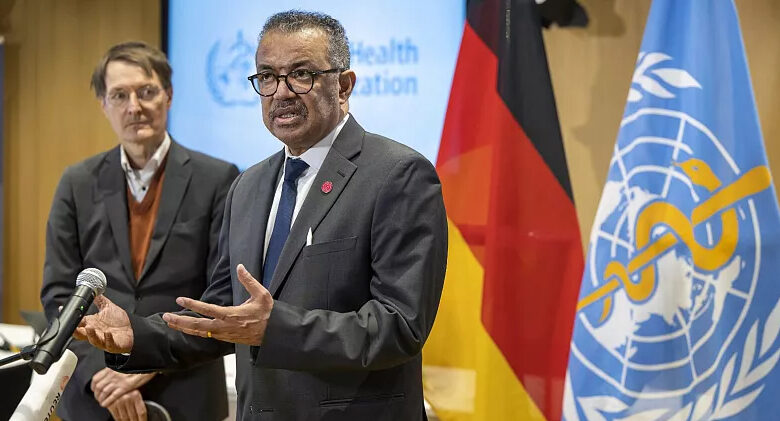
WHO Launches Health Emergency Appeal for 2025
On January 16, 2025, the World Health Organization (WHO) officially launched its Health Emergency Appeal for 2025, aiming to address the ongoing global health crises exacerbated by conflicts, climate change, and economic instability. This appeal comes at a time when over 305 million people worldwide are in urgent need of humanitarian assistance, reflecting the severe pressures on health systems and communities globally. As the world grapples with multiple crises, the WHO’s initiative seeks to mobilize resources and coordinate efforts to safeguard health and restore hope.
The Context of the Appeal
The WHO’s Health Emergency Appeal is a response to a confluence of factors that have intensified health emergencies around the globe. Prolonged conflicts in regions like Ukraine, Sudan, and Haiti have disrupted essential health services, while climate change has led to an increase in natural disasters, food insecurity, and the spread of infectious diseases. The appeal identifies 42 ongoing health emergencies, including 17 classified as Grade 3 crises—the most severe designation by the WHO.Dr. Tedros Adhanom Ghebreyesus, Director-General of WHO, emphasized the urgency of this appeal during its launch. “When health is at risk, everything is at risk,” he stated. “This is a call to action. Together, we can save lives and uphold the universal right to health.” The appeal seeks $2.5 billion in funding to address immediate health needs and strengthen health systems in vulnerable communities.
Key Priorities of the Health Emergency Appeal
The Health Emergency Appeal outlines several critical priorities aimed at addressing both immediate needs and long-term resilience:
- Emergency Health Services: Ensuring availability and access to life-saving health services for vulnerable populations affected by conflict and disasters. This includes pregnant women, children, internally displaced persons (IDPs), and those injured due to violence.
- Disease Surveillance and Outbreak Response: Strengthening disease surveillance systems to detect and respond rapidly to outbreaks of epidemic-prone diseases such as cholera, malaria, and COVID-19.
- Supply Chain Operations: Securing critical supply chains for essential medicines and medical equipment amidst ongoing security challenges in conflict zones.
- Climate Resilience: Integrating climate change considerations into health emergency responses, recognizing that climate-related factors significantly impact public health.
- Community Empowerment: Engaging local communities in health interventions to enhance resilience against future crises.
The Role of Climate Change in Health Emergencies
Climate change is increasingly recognized as a fundamental threat to global health. Rising temperatures, extreme weather events, and changing precipitation patterns contribute to food insecurity, water scarcity, and the spread of infectious diseases. The WHO has identified climate change as a key factor exacerbating existing health vulnerabilities.According to WHO projections, climate change could cause approximately 250,000 additional deaths per year between 2030 and 2050 due to malnutrition, malaria, diarrheal diseases, and heat stress alone. Vulnerable populations—particularly those in low-income countries—are disproportionately affected by these changes. The WHO’s appeal emphasizes the need for integrated approaches that address both health and environmental challenges.
Funding Needs and Global Response
The WHO‘s appeal for $2.5 billion underscores the urgent need for funding from donor countries and organizations. In recent years, funding gaps have widened as global needs have surged. For instance, in 2024 alone, WHO reported needing $1.5 billion but received only a fraction of that amount.To bridge this gap, WHO is calling on governments, private sector partners, and civil society organizations to contribute generously to the appeal. The funds will be utilized for immediate interventions as well as long-term strategies aimed at building resilient health systems capable of withstanding future shocks.
The Importance of Collaboration
Addressing global health emergencies requires a coordinated effort among various stakeholders. The WHO’s appeal highlights the importance of collaboration between international organizations, national governments, local communities, and private sector partners. By working together, these entities can enhance resource mobilization efforts and ensure that aid reaches those who need it most.In addition to financial support, WHO emphasizes the need for technical expertise and logistical assistance in implementing emergency responses effectively. Partnerships with organizations like UNICEF and Médecins Sans Frontières (Doctors Without Borders) are crucial for delivering comprehensive healthcare services in crisis-affected areas.
Looking Ahead: A Call for Action
As we move further into 2025, the challenges facing global health systems remain daunting. The COVID-19 pandemic has highlighted vulnerabilities within healthcare infrastructures worldwide; however, it has also galvanized action towards strengthening these systems against future threats.The WHO‘s Health Emergency Appeal serves as a pivotal moment for global health advocacy—a rallying cry for action amidst unprecedented challenges. It calls upon individuals and organizations alike to recognize their role in supporting vulnerable populations facing dire circumstances.Dr. Ghebreyesus concluded his remarks during the launch by stating: “We must not forget that every humanitarian crisis is a health crisis. When we invest in health systems today, we are investing in our collective future.”
